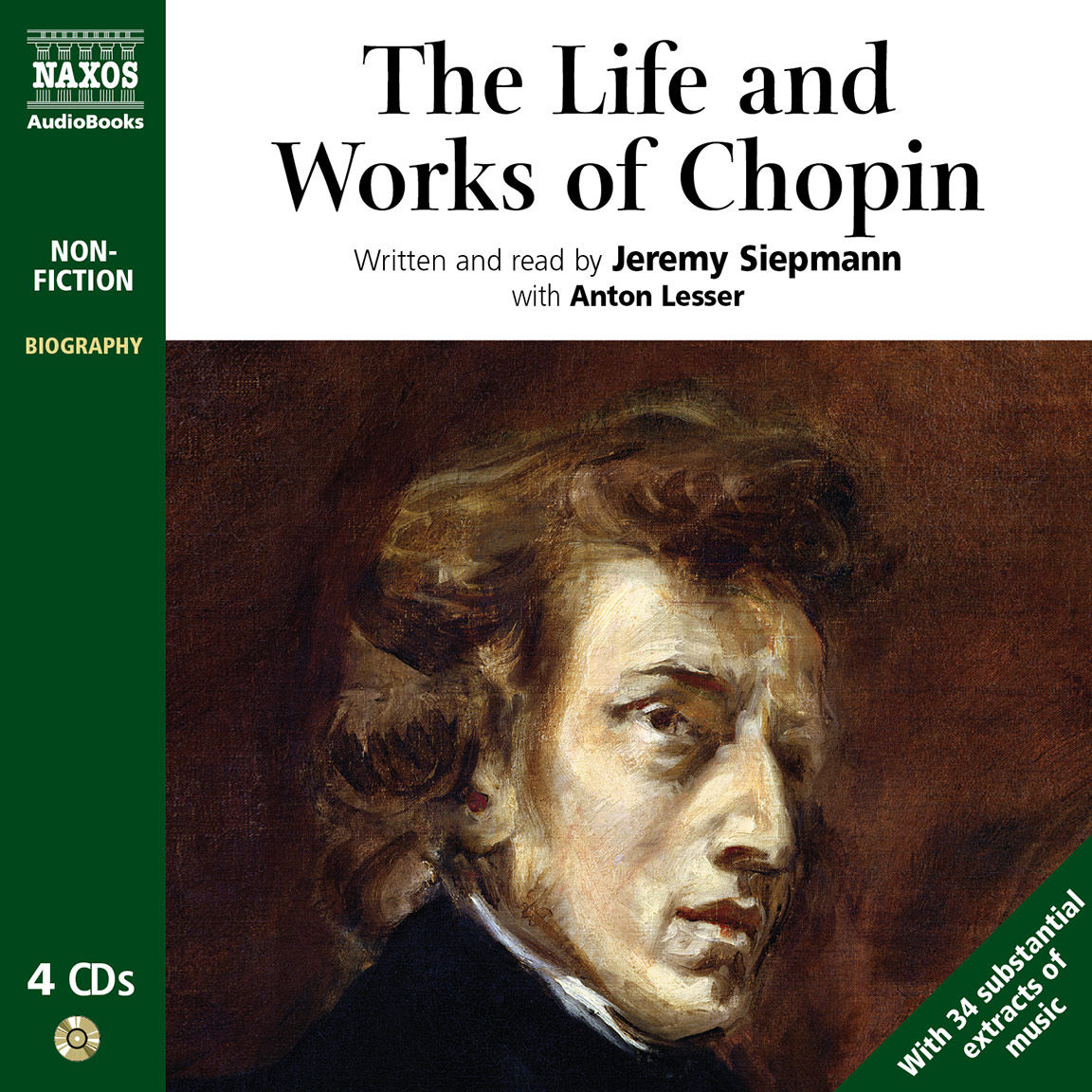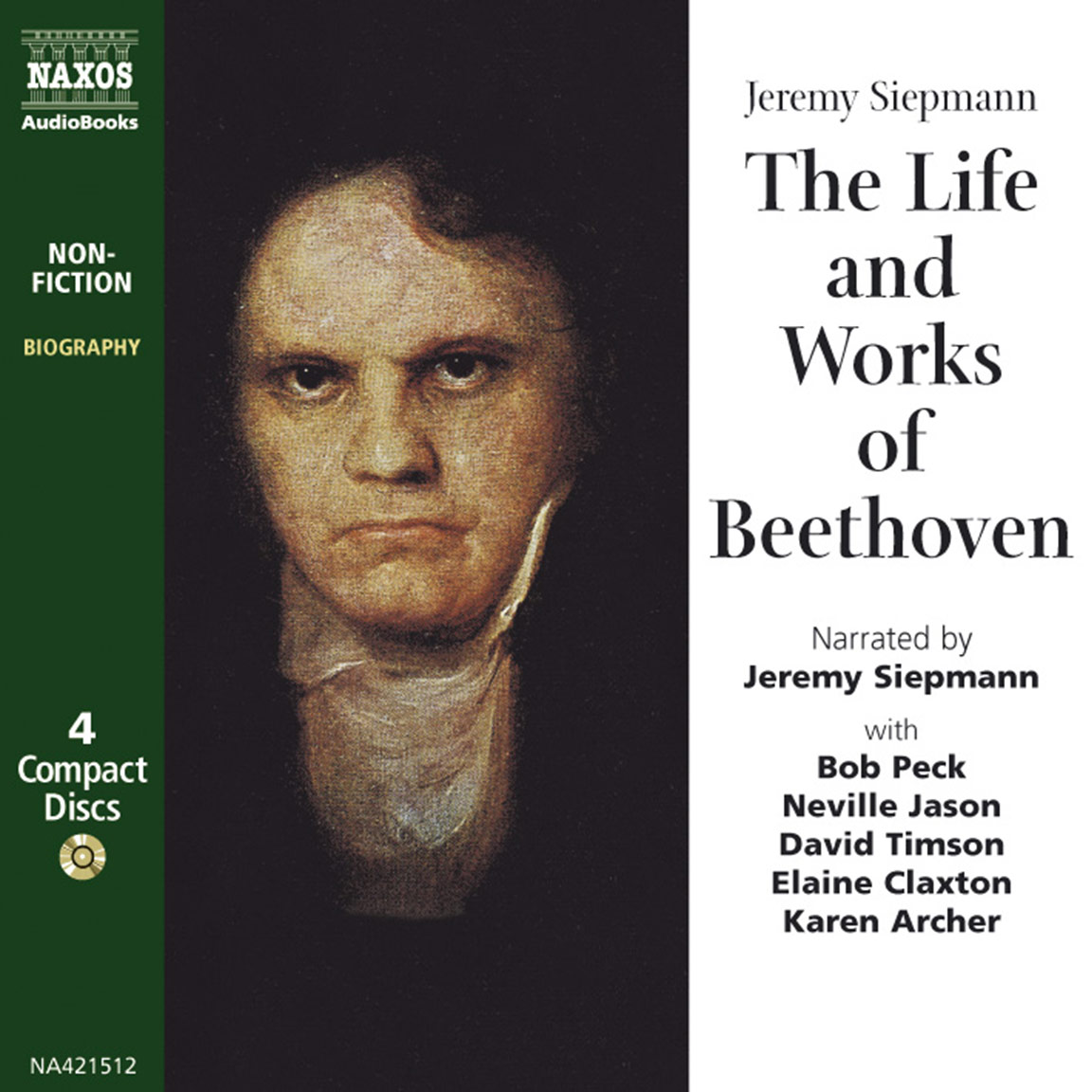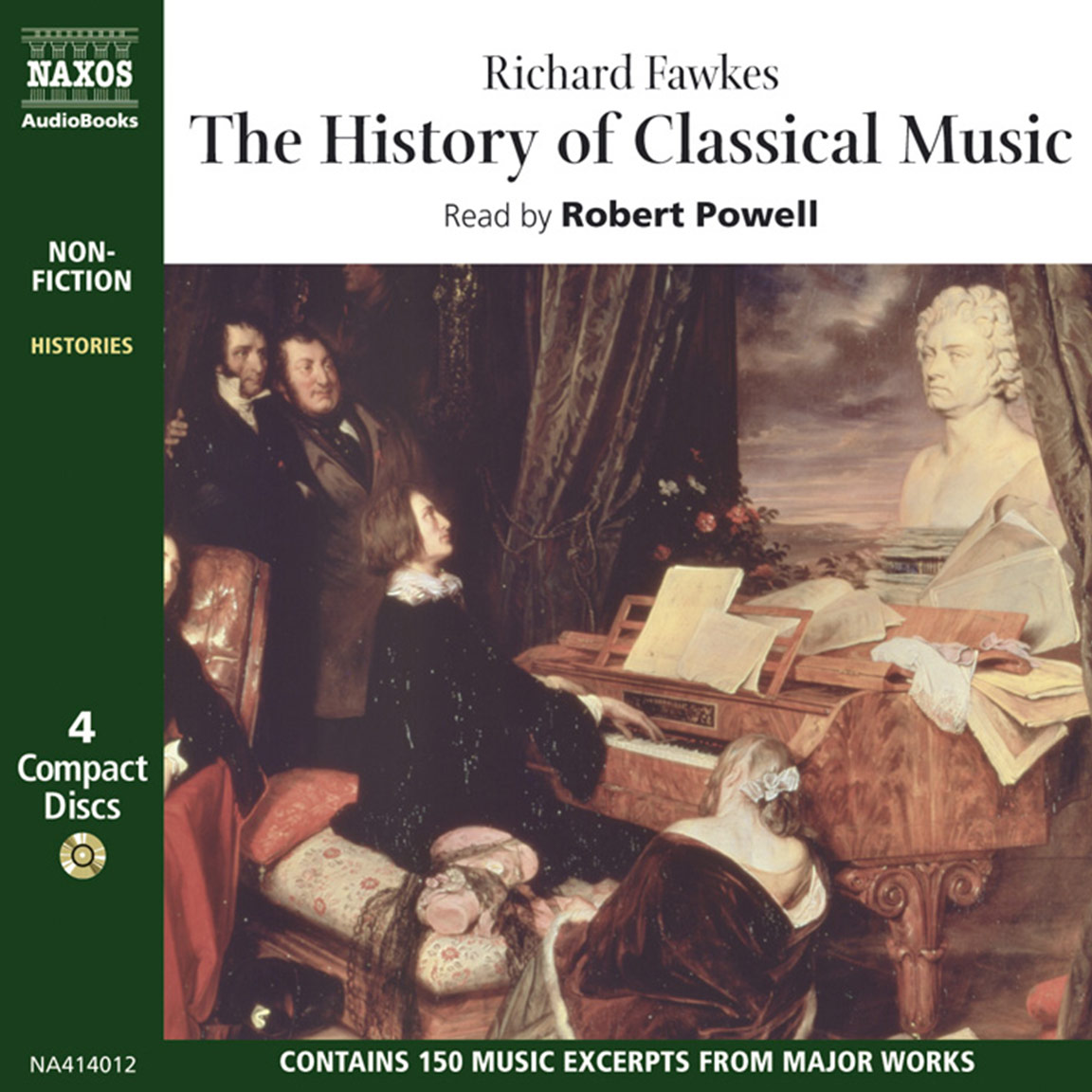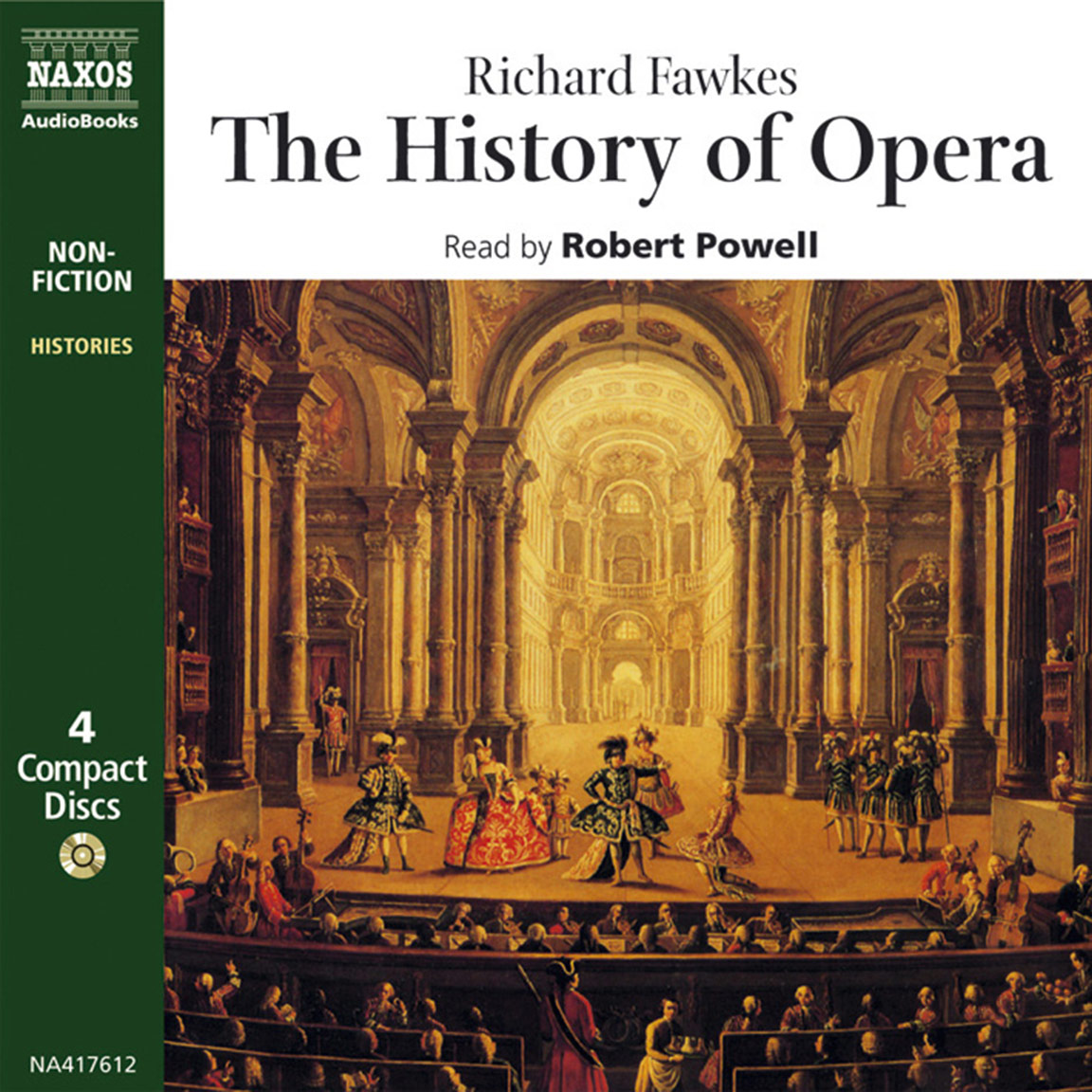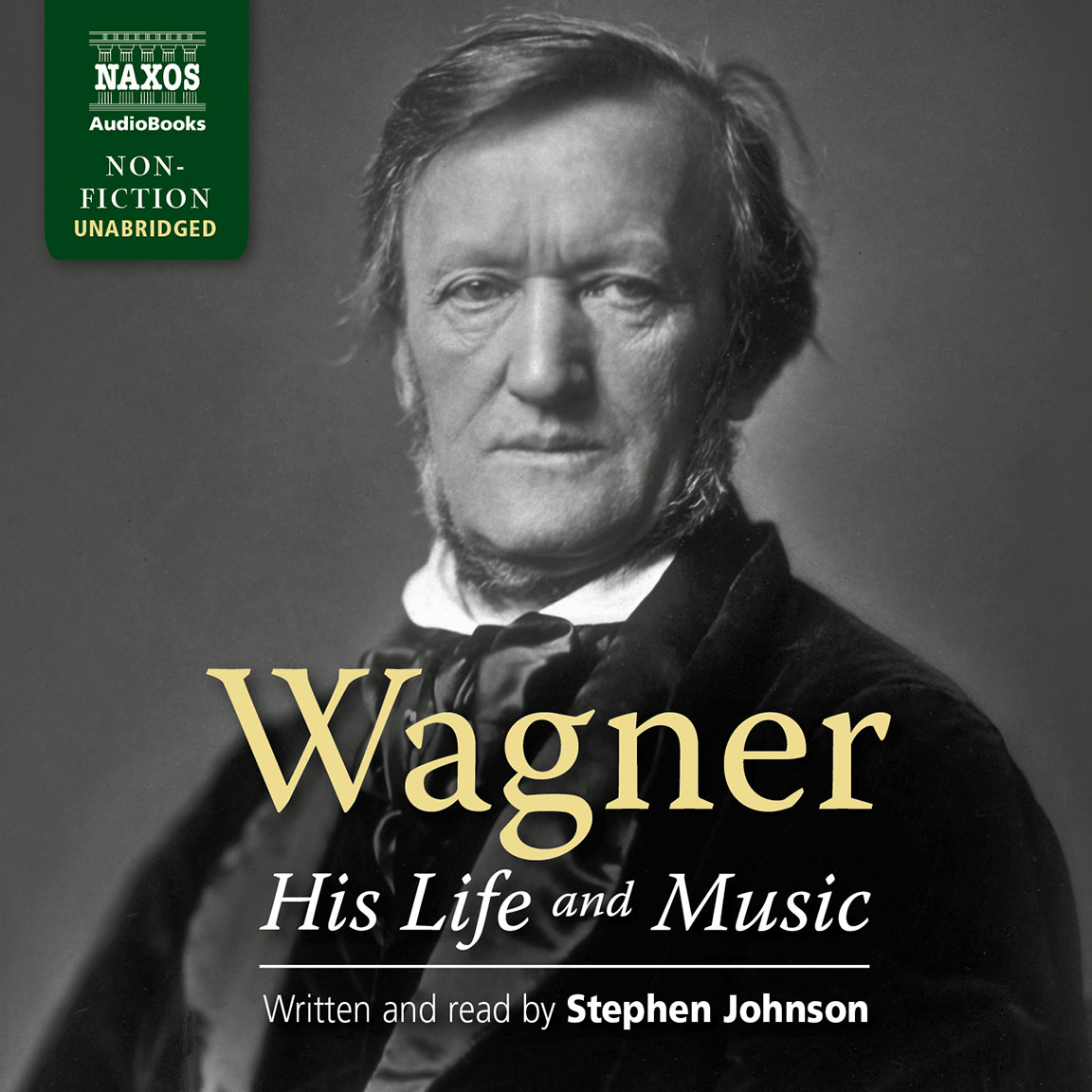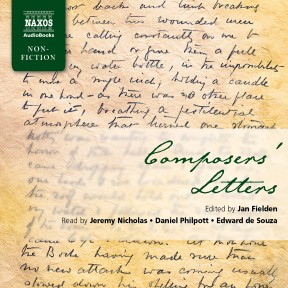
Audio Sample
Jan Fielden
Composers’ Letters
Read by Jeremy Nicholas, Daniel Philpott, Edward de Souza, Anton Lesser, Benjamin Soames & Hugo Godwin
selections
In Composers’ Letters, the voices of the great figures of classical music come alive through their correspondence. Set against the music we know and love, Mozart, Beethoven, Schubert, Wagner, Tchaikovsky and many more talk openly about their music, their hopes and fears, their love, their sadness and their struggles in realising their artistic hopes in a commercial world. Poignant, funny, revealing, informative and so often direct and honest, these letters offer a fascinating insight into the personalities that created our Western musical tradition.

-
Running Time: 2 h 28 m
More product details
Digital ISBN: 978-1-84379-573-5 Cat. no.: NA203012 Download size: 36 MB BISAC: MUS020000 Released: January 2000 -
Listen to this title at Audible.com↗Buy on CD at Downpour.com↗Listen to this title at the Naxos Spoken Word Library↗
Due to copyright, this title is not currently available in your region.
You May Also Enjoy
Reviews
Winner of AudioFile Earphones Award
In a perfect and perfectly delightful use of the audio format, this offering pairs accomplished and well-cast actors with letters written by famous composers. The letters are given chronologically, from J.S. Bach’s writing about career and money difficulties in the seventeenth century through the letters of Haydn, Mozart, Beethoven, Brahms and others up to Tchaikovsky and Stravinsky in the twentieth. A brief and helpful historical note precedes each composer’s section and, best of all, the music he’s writing about accompanies and illuminates the words. Age-appropriate actors voice composers writing in old age while lighter, boyish voices bring us young Mozart, or Chopin as a determined and very broke youth writing home from Paris. This reviewer’s only possible complaint would be that the book isn’t twice as long.
B.G., AudioFile
Booklet Notes
In these composers’ letters, as well as in their music, we can hear the voices of the men themselves. Through their own words expressed simply on paper and committed to the postal services – whatever they may have been like at the time – a portrait of the composer as a human being emerges. Frequently, this shows a different, perhaps unexpected side to the master of sound and artifice known to us more usually through a series of symphonies or concertos.
It is impossible to give a rounded portrait of each composer through a small selection of correspondence and music such as this; however, it is hoped that the incidents and feelings related in the composers’ letters, coupled with their own music, will give us a vivid impression and distinctive flavour of the man.
It becomes evident
through the letters
how composers thrive
on musical gossip,
meeting and playing
with other musicians
From the truly fascinating – and huge – library of letters that exists from European composers of the past four centuries, several broad themes emerge. These include creativity, the struggles of earning a living, friendships (particularly with other composers), romance, the composers’ place in society, travelling, and of course, performances.
This collection begins in the eighteenth century with George Frederic Handel and ends in the mid-twentieth, with Benjamin Britten, and it is possible to detect from the letters how over the centuries the status and role of the composer has changed. Handel, Bach and Mozart were little more than servants or tradesmen to minor princes or city and church officials now long forgotten except for their, often parsimonious, patronage of their ‘servants’. Fortunately the creativity of these composers survived to leave us the Vespers of 1610, the Mass in B minor and Cosi fan Tutti! Gradually, as the centuries passed, composers became less dependent and were able to live, often precariously, on what they earned from their music, unencumbered by a commanding patron. As the practice of subscription concerts and private and public commissions developed, so they became more independent.
It is striking, on reading the correspondence of composers, how efficient they had to be – so often their own publicists, agents, and travel managers. Nowadays the pressure is relieved by agents, though a well-organised, worldly musician is still at an advantage.
The community of composers has always been important. Few people like working in a vacuum and it becomes evident through the letters how composers thrive on musical gossip, meeting and playing with other musicians, writing letters, listening to each other’s work. The influence of one composer upon another is important. For example, Frederick Delius and Edvard Grieg inspired and supported each other, Wagner appreciated having Liszt to write to, especially when he was in exile in Switzerland, and Prokofiev and Stravinsky, despite their uneasy, competitive relationship, were good friends, as were Berlioz and Mendelssohn. Then of course there are the love affairs – Schumann’s, Tchaikovsky’s and Wagner’s, to name a few.
Each composer experiences the events and turmoils of his age and this is reflected in his music.
Despite the gradual change in status of composers, there remains a constancy of themes in their letters. The struggle to get on and do what they wanted and not what was expedient, the struggle to make a living, the common experience of the hurt inflicted by the critics. In compiling this collection one is forcibly reminded that though music was the primary creative medium of these composers, they have also proved to be expressive letter writers. It is hoped that you too, in listening to these letters and hearing again the music, will gain fresh insight into the lives and times of those composers we so admire.
Notes by Jan Fielden
